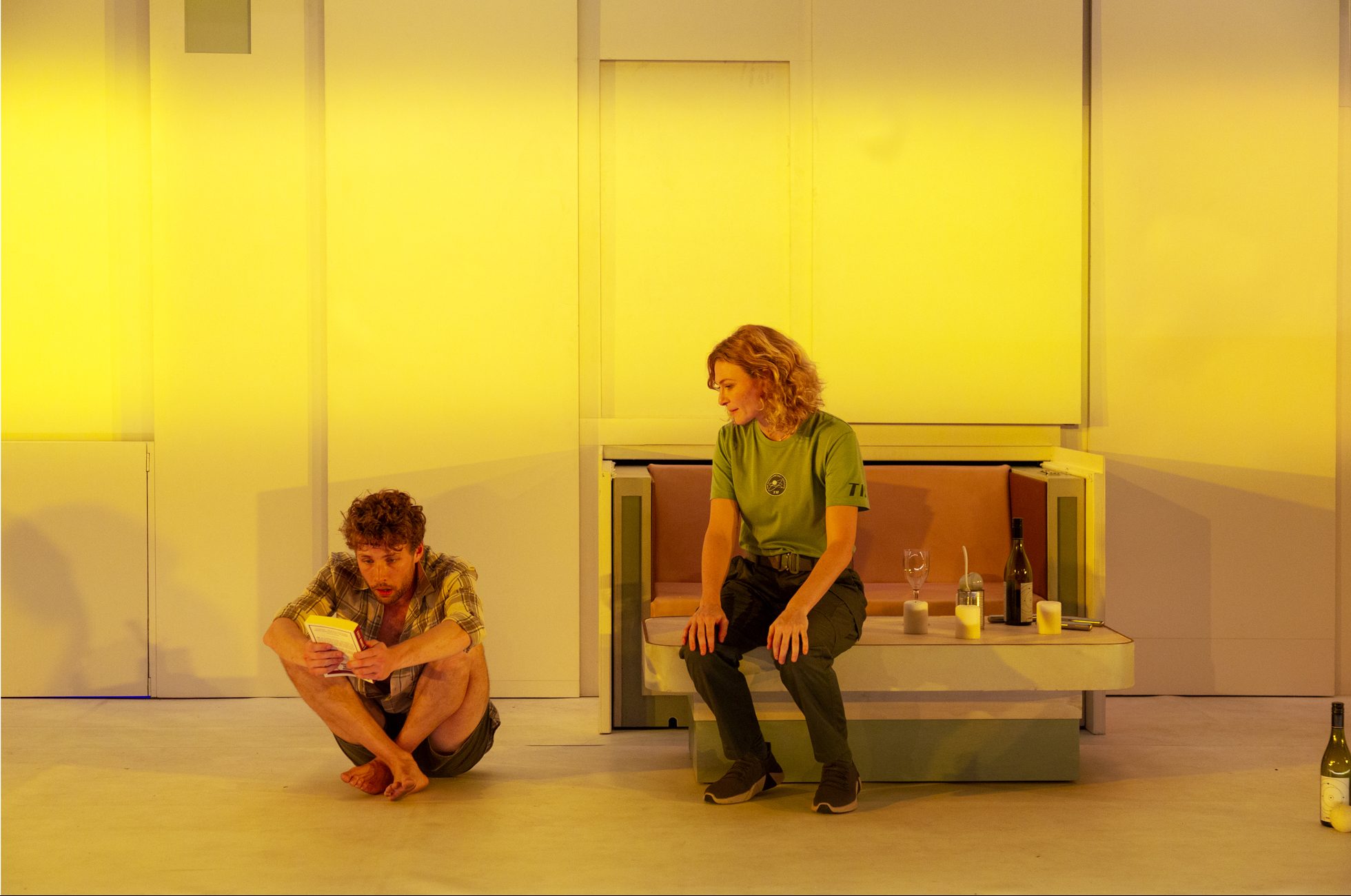★★★★½
From its opening minute to its climax, Solaris – the new play from Malthouse Theatre and the Royal Lyceum Theatre of Edinburgh – is a work of uncertainty. First, a black screen covers the stage. The screen then lifts to reveal the interior of a space station. Characters flash in and out while an eerie, rumbling soundscape sets an ominous mood. This atmospheric opening immediately prompts questions: why is there a young girl on board, for example, and why is she screaming? This sense of uncertainty around what is occurring or what might occur is one of the things that makes the production so special.
Dr. Kris Kelvin (Leeanna Walsman) is one of the first characters to flash onstage, clad in an astronaut suit. She’s newly arrived at the space station, joining the existing crew orbiting (and observing) Solaris, a strange planet far from Earth. But Kelvin is greeted by rattled crew members (Jade Ogugua and Fode Simbo), a visitor named Ray (Keegan Joyce) and the understanding that things have taken a turn for the bizarre. Adapted from Stanisław Lem’s 1961 novel, you may know Solaris by its cinematic adaptations: Andrei Tarkovsky’s lauded 1972 film or the Steven Soderbergh-directed, George Clooney-starring 2002 version. But this new play requires no prior knowledge. As directed by Matthew Lutton from a script by David Greig, it is intense, frightening and riveting all on its own.
One of the show’s many highlights is its costume and stage design led by Hyemi Shin. Visually, the Solaris crew are reminiscent of the crew in Ridley Scott’s Alien, with practical uniforms that are more familiar than futuristic. The space station set is remarkable, too: beautiful, sparse, carefully designed. Though this Solaris is a one-location show, it makes magical use of that sole location, like the way the actors, bathed in red light, gaze out into the audience to evoke Solaris’ unseen presence. Moving panels, doors and props mean each room of the space station is unique, while the aforementioned black screen – used initially to hide location transformations – isn’t only a tool to mask the changes, but one that enhances the play’s fantastic sense of dread, eeriness and mystery.
In Lem’s novel (and most adaptations), Kelvin is a man and the visitor a woman. It’s very refreshing to have the genders reversed here, especially because, as Kelvin, Walsman is perfect to lead the show. Like each of the play’s impeccable performances, it’s deeply human, multifaceted work. Confronted with their grief, the limitations of memory or something new and unfathomable, these characters still try to exert their strength, even if they’re on the brink of crying, screaming or swearing.
Some characters believe Solaris is gifting them a second chance; others are more cynical and bitter. The play’s clever ambiguity leaves it open and speculative for those on the stage and in the audience. But while it may be an exercise in the unknown, it’s certain that Solaris is a must-see in every way.
Solaris is running until Sunday July 21 at Malthouse Theatre.







